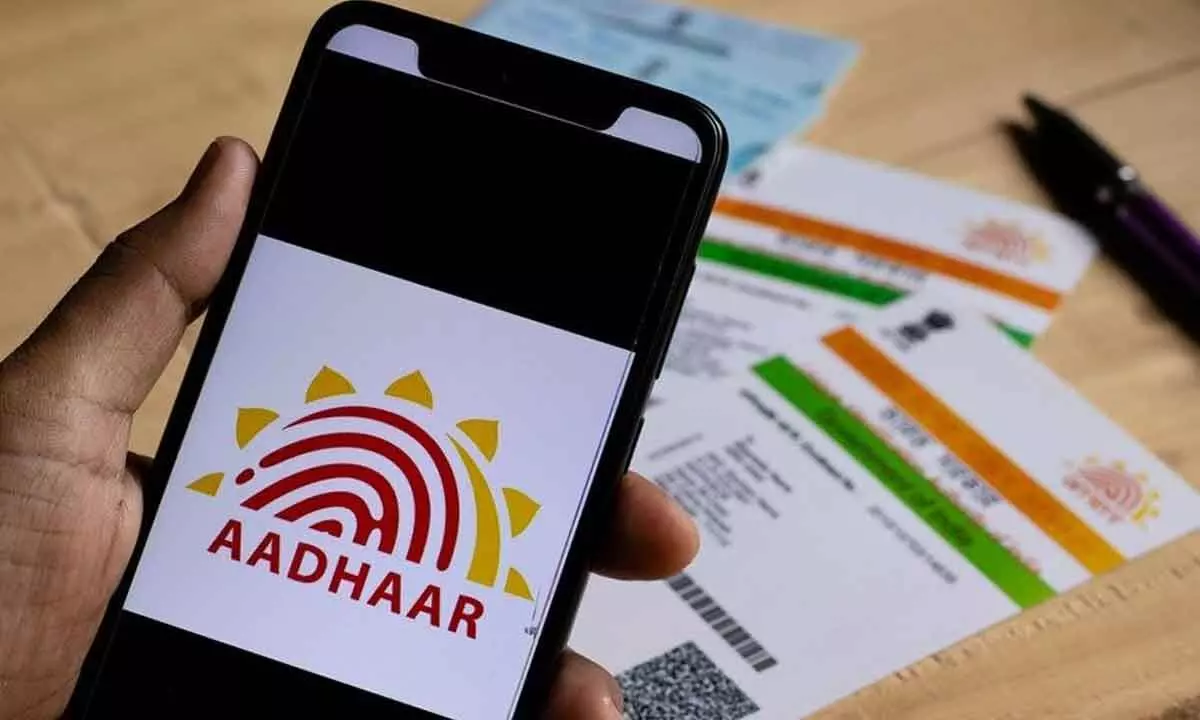Live
- They always want me to win, and now I feel lucky to have been offered a story like ‘Zebra’: Satyadev Kancharana
- ‘Democracy first, humanity first’: PM Modi in Guyana's parliament on two countries' similarities
- PKL Season 11: Telugu Titans register third straight win to top standings
- Is Pollution Contributing to Your COPD?
- NASA Unveils Underwater Robots for Exploring Jupiter's Moons
- Additional Central forces arrive in violence-hit Manipur
- AR Rahman and Saira Banu’s Divorce: Legal Insights into Common Issues in Bollywood Marriages
- 82.7 pc work completed in HPCL Rajasthan Refinery area: official
- Curfew relaxation extended in 5 Manipur districts on Friday
- Tab scam prompts Bengal govt to adopt caution over fund disbursement
Just In

A similar project called the battery passport is underway in Germany with financial support from the federal government in Berlin. In the Indian context, the roadmap suggested development of the battery Aadhaar standardised system or protocol to improve sustainability, efficiency and safety in manufacturing, usage and recycling by providing a detailed information about each battery’s composition, usage history and end-of-life management.
New Delhi: India’s e-mobility R&D roadmap has suggested an Aadhaar number for batteries to keep a digital record of its material composition, usage history and end of life management as part of efforts to streamline the recycling process.
The suggestion is part of the eMobility R&D Roadmap for India, released by Principal Scientific Adviser to the government Prof A K Sood, that lists out 34 research projects to become self-reliant and emerge as a global leader in providing innovative mobility solutions.
“This roadmap aims to fill critical gaps in the current research and development framework. While many identified projects are yet to achieve global success, some areas already demonstrate significant international accomplishments where India is yet to commence preparations,” said Prof Karthick Athmanathan, a member of the Consultative Group of e-Mobility Advisory Committee.
The roadmap has listed 34 projects for research and development across four broad areas – energy storage cells, EV aggregates, materials and recycling, charging and refueling. Among the projects listed for R&D is development of a battery Aadhaar system that would help adopt efficient recycling procedures for batteries that are more beneficial to the environment.
“It is a completely thought out standardisation of a 16-digit number, which will provide complete information about the battery pack. It will help us in the battery’s second use, recyclability and everything during the life-cycle of that battery,” said Abhijit Mulay, Deputy Director, Automotive Research Association of India (ARAI).
A similar project called the battery passport is underway in Germany with financial support from the federal government in Berlin. In the Indian context, the roadmap suggested development of the battery Aadhaar standardised system or protocol to improve sustainability, efficiency and safety in manufacturing, usage and recycling by providing a detailed information about each battery’s composition, usage history and end-of-life management.
The proposed Aadhaar numeric barcode for each battery would contain the data and description about the battery manufacturing year, lithium import, electrode materials, cell localisation, manufacturing history, battery chemistry, battery capacity, manufacturing location and battery potting. “This information will be more convenient to recyclers for streamlining the recycling process,” Mulay said.
Addressing the gathering earlier, Sood said India has set itself a goal to achieve energy independence by 2047 and 30 per cent electric vehicle penetration by 2030 as part of efforts to achieve net-zero emissions by 2070. The e-Mobility R&D Roadmap has assigned high priority to this project due to the significant need for digital data storage, transparency, traceability and localization of batteries. The roadmap stated that determination of these parameters will aid in second life applications as well as recycling and management of batteries.

© 2024 Hyderabad Media House Limited/The Hans India. All rights reserved. Powered by hocalwire.com






